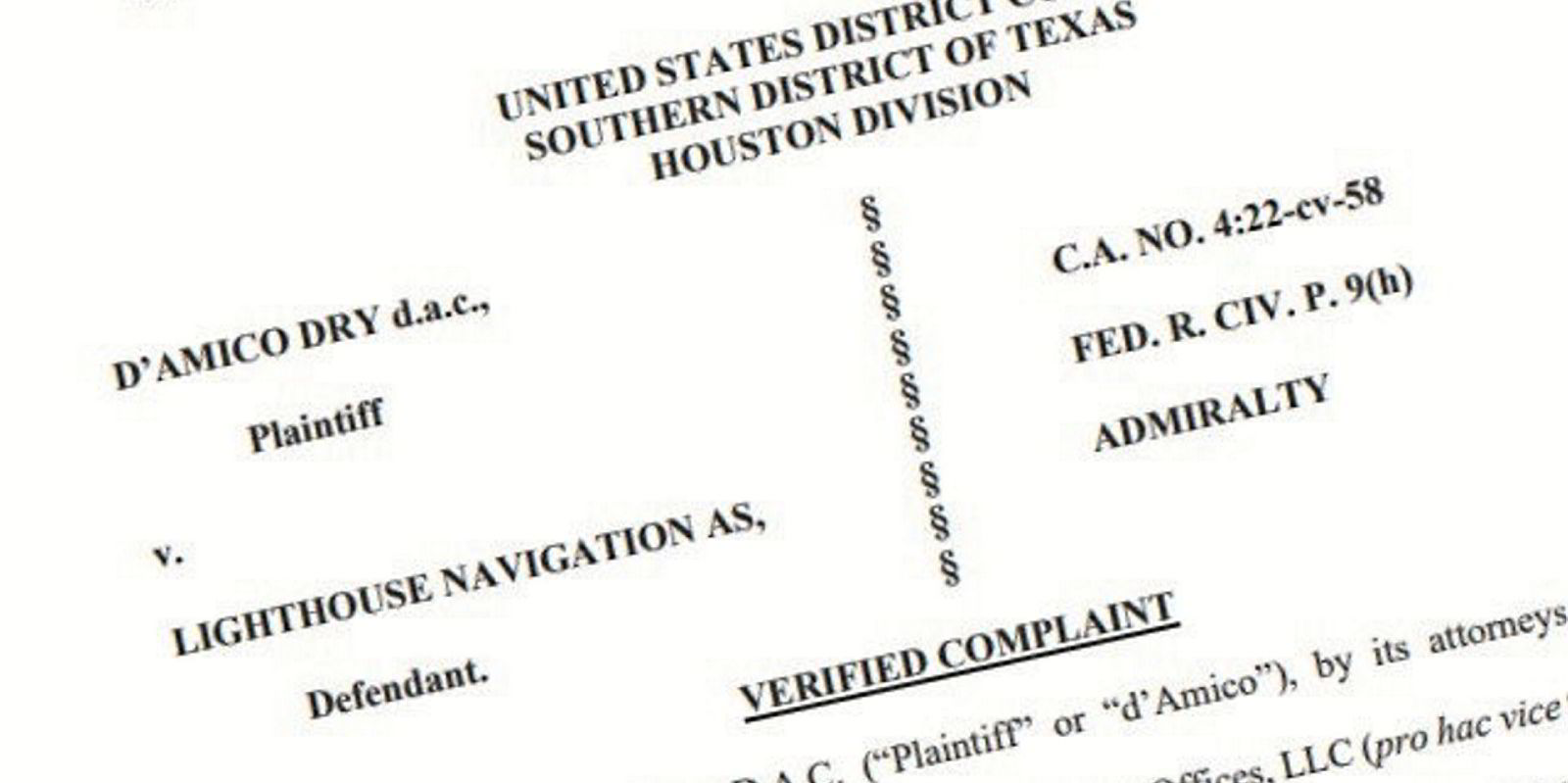Changing jurisdictional principles are trickling down from the US supreme court to the world of maritime law, and the result is dismaying for some shipowners and charterers.
Lower courts continue to examine the eight-year-old supreme court ruling of Daimler AG v Bauman for its specific implications. But the tendency in maritime law has been to tighten the legal net on non-US parties.
The Daimler decision and subsequent appellate court decisions address the requirements for “general personal jurisdiction”, and leave the implications for maritime law to be drawn.
On land, the effect has been to make it harder to sue defendants outside their real home jurisdiction. But the effect for foreign maritime defendants may be the opposite, making it harder for them to escape lawsuits in the US.
Several maritime lawyers have told TradeWinds they believe their clients have lost a traditional way of hiding in plain sight: registering with the state of New York to do business there as a foreign entity, without actually setting up shop.
For years, New York maritime lawyers have advised foreign clients to take that simple and inexpensive step.
In 2009, the US second circuit, New York’ appellate court, found specifically in the case of STX PanOcean v Glory Wealth that registering in a district and appointing an agent for service would make foreign parties legally present in the district and shield them from maritime “Rule B attachment” lawsuits.
But that was before Daimler and courts are now increasingly rejecting such a move.
Flip-flop
George Economou may be the biggest beneficiary so far.
As the law continues to develop, US courts have seen prominent lawyers reverse themselves from one case to the next.
That includes Holland and Knight’s James Power and Blank Rome’s John Kimball and Lauren Wilgus.
In Classic Maritime v XCoal Energy and Resources, a lawsuit based on a contract of affreightment dispute, Classic has secured some $6m of security for a still-pending arbitration against his adversary, Pennsylvania-based exporter and trader XCoal Energy and Resources.
XCoal’s lawyers at Blank Rome had tried unsuccessfully to argue that its registration to do business in the Southern District of New York made immune from Rule B.
But in another case involving Economou just months earlier, the two teams had taken the opposite positions. In Beauty Maritime v Sigma Tankers, a dispute over the defection of Dubai tanker owner Emarat from the Heidmar pools, it was Blank Rome unsuccessfully seeking to attach Sigma’s assets and Holland and Knight successfully arguing that his client was immune because it had registered to do business.
Making the absent present
It sounds paradoxical that by formally establishing a presence in a jurisdiction, a potential defendant could put itself out of the legal reach of the court there.
But Rule B in the US, like corresponding maritime procedures in other countries, developed specifically for a business in which absence is the norm, the parties remote, and their assets intrinsically transient. Its legal superpower is making the absent present.
Targeting the assets of those who are “not found in the district” turns the ordinary legal game of jurisdictional hide-and-seek on its head. Maritime parties who want to avoid Rule B attachment of their assets do so specifically by showing they are found, and therefore not fair game.
Until maritime lawyers began exploiting Daimler, a painless way to make oneself “found in the district”, without making oneself vulnerable, has been to register to do business and appoint an agent for service as specified in STX PanOcean without really establishing an office.
But the STX PanOcean principle is now much harder to rely on, said a number of prominent US maritime lawyers who spoke with TradeWinds on the changing rules of the game.
“I think the law is in flux,” said Patrick Lennon of the Lennon, Murphy, and Phillips law firm. “Cases haven’t trickled down yet from the Supreme Court to the world of maritime law but I expect that they will do so.”
Others put it more strongly.
“I feel it is pretty well settled now that just registering with the New York secretary of state is not sufficient. You can’t just drop in and register to do business and be immune to maritime attachment,” said John Kissane of the New York branch of Watson, Farley, and Williams, who thinks there has been a gradual shift since Daimler.
“Having won on both sides of the issue, my gut feeling is that in the end we’re going to see courts move towards a rule where registration alone is going to be insufficient to defend against Rule B,” said Holland and Knight’s Power.





